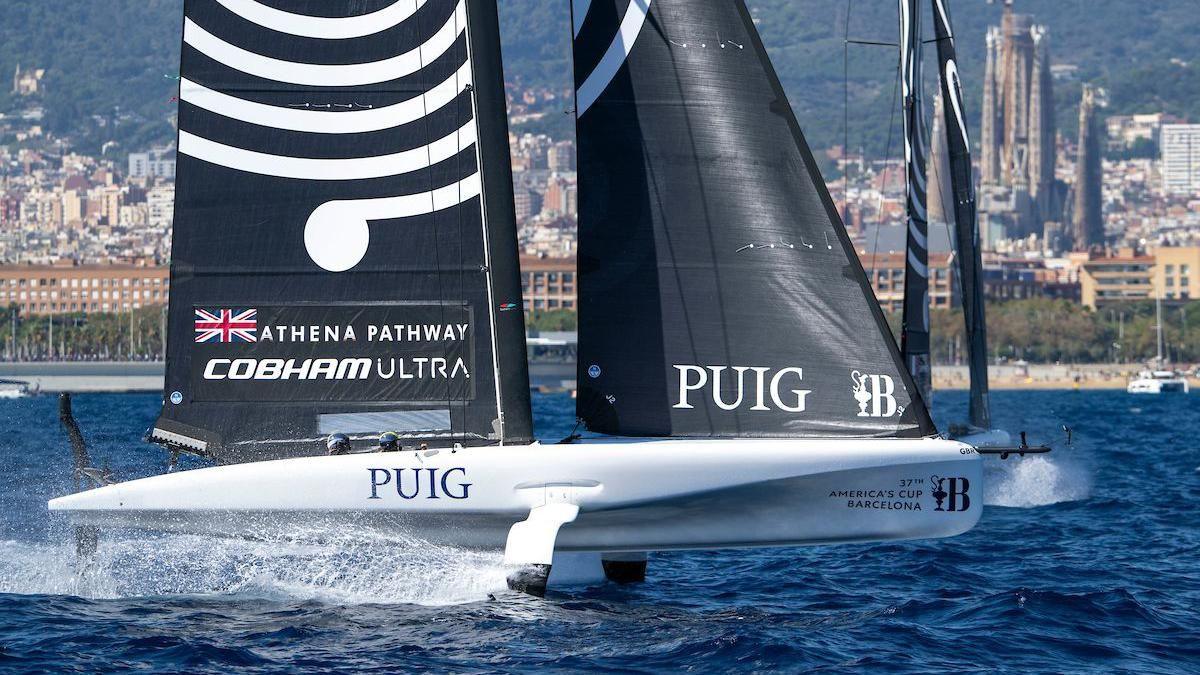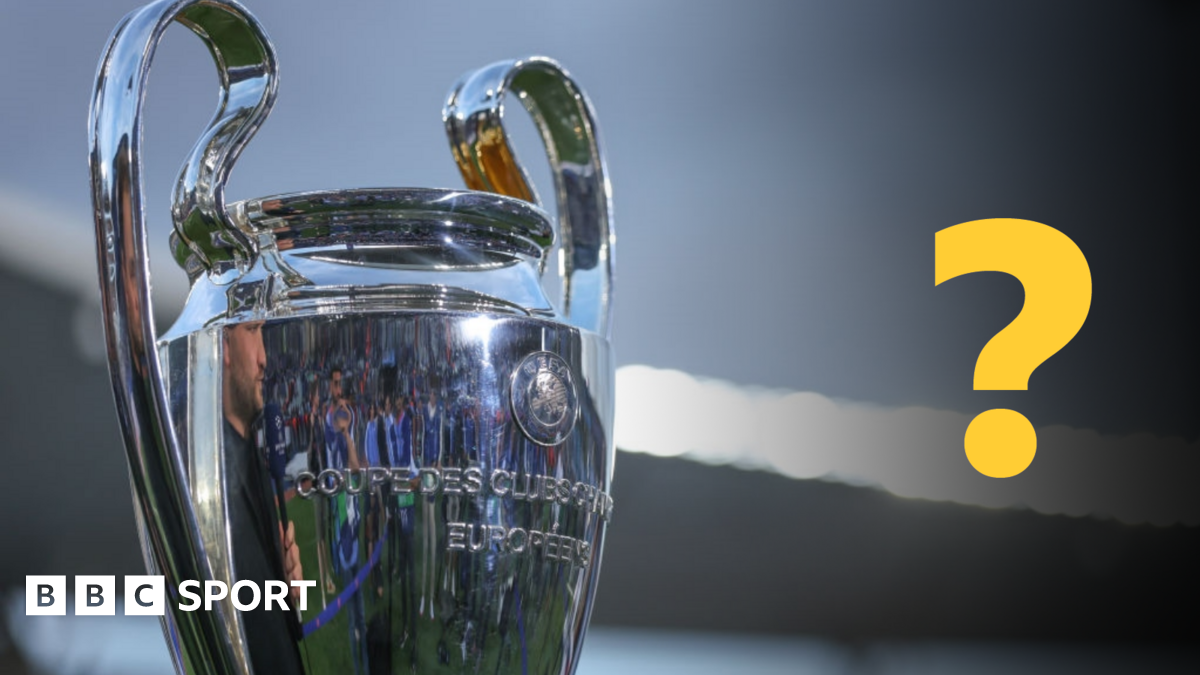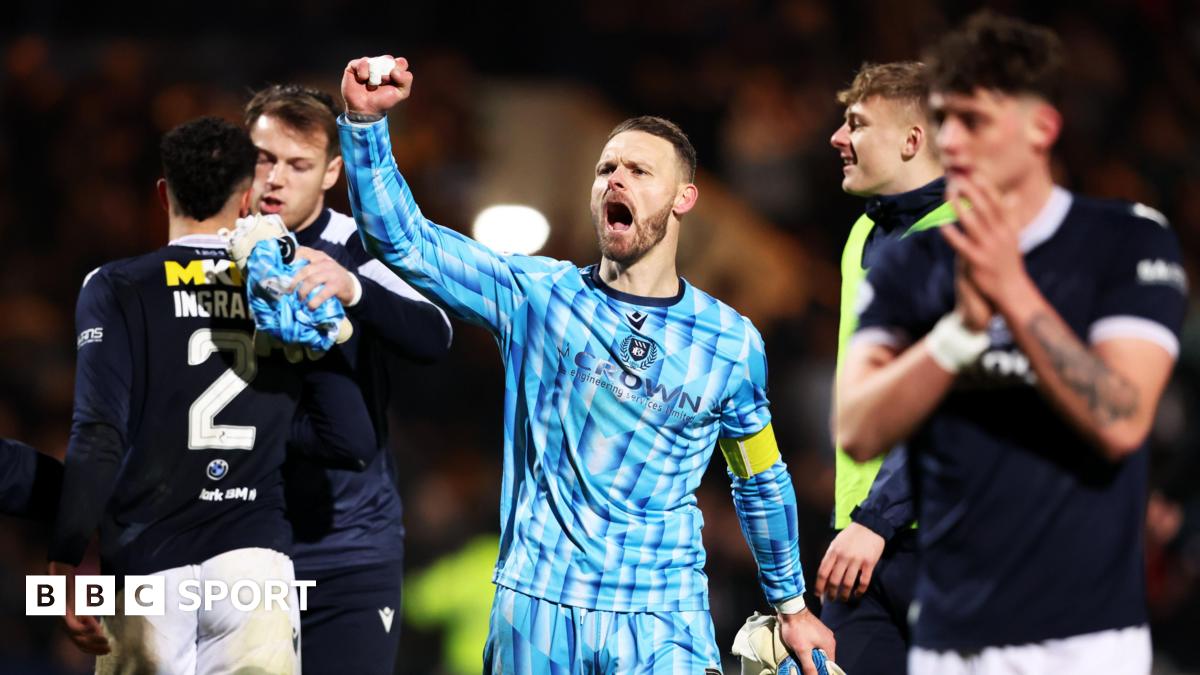ARTICLE AD BOX
 Image source, Athena Racing
Image source, Athena Racing
The team is using the Athena Pathway AC40 boat, which can sail at speeds of up to 100km/h (62 mph)
Olympic gold medallist Saskia Clark hopes seeing a British team competing in the first Women's America's Cup will encourage more females to pursue careers in the sailing world.
Clark won gold alongside Hannah Mills in the 470 class at Rio 2016 and they are both part of the 12-strong Athena Parkway team in Barcelona.
They ended the first day of racing in second place overall in their group as they look to match the men's team, led by Sir Ben Ainslie, and reach Sunday's final.
"It's a big deal for women in sport and hopefully it can become something bigger and a bit more meaningful in that whole bigger picture of women's participation," Clark told BBC Essex.
"Alongside the sailing bit, there's a lot of background work in engineering and boat building, careers that haven't been that accessible for females so we're really trying to push the science, technology, engineering and maths aspects to get young women and girls interested in those career paths.
"We've done some roadshows in schools in the UK and a big thread of the campaign is trying to push that gender equity."
The Parkway team was co-founded by Mills and Ainslie in 2022 to fast-track promising sailors and increase diversity in the sport.
More than 300 sailors applied to take part, and 18 months of trials followed before the team was whittled down to the final dozen.
Others taking part include Anna Burnet, who won a silver medal at the Tokyo Games in 2021 and fellow Olympians Ellie Aldridge, Saskia Tidey and Freya Black.
The team have been out in Barcelona for six months and that has meant being part of the maintenance crew for their hi-tech AC40 vessel as well as practicing for competition.
Clark said: "These machines are so technical now, there's a whole lot of electronic systems, hydraulic systems, engineering systems.
"We've got some specialists (with us) in each of those departments but the sailors have also had to really upskill and take their roles on the shore side, (to help) keep the boat going.
"For each sailor, each athlete, it's been about two hours on the water on average per week but as we got closer to the event, we managed to get those sailing hours up and really press on with the nuts and bolts of what our sport is."
Image source, Getty Images
Image caption,Hannah Mills and Saskia Clark won gold at Rio de Janeiro in 2016
Clark, who learned to sail on the Blackwater Estuary in Essex, walked away from Olympic competition following her success eight years ago.
However, she said: "I retired from Olympic sailing after Rio in 2016 - [but] I hadn't actually retired from sailing, it was still where I was making my living, on the pro tours.
"This, for sure, is a very different kind of thing. The speeds that these boats go is incredible.
"We fly across the water and that's a totally new element in my sailing repertoire."

 3 months ago
29
3 months ago
29








 English (US) ·
English (US) ·